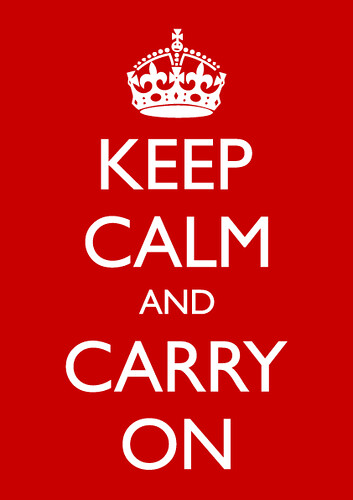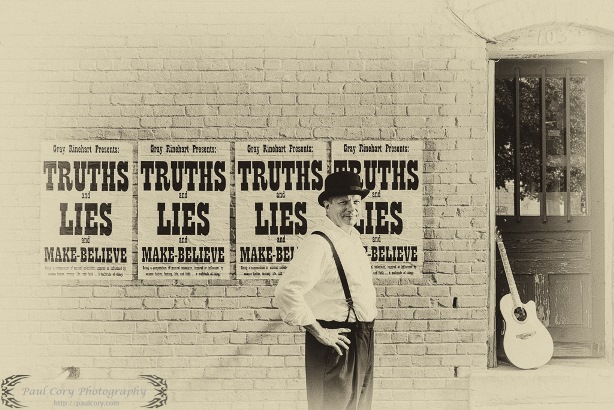I haven’t posted, haven’t sent out a newsletter, haven’t done much of anything since before our trip to the World SF Convention.

(Image by Hunter Desportes, on Flickr under Creative Commons.)
I am still here, still working, just … swamped.
I haven’t posted, haven’t sent out a newsletter, haven’t done much of anything since before our trip to the World SF Convention.

(Image by Hunter Desportes, on Flickr under Creative Commons.)
I am still here, still working, just … swamped.
A week from today I’ll be at the inaugural — yes, the first-ever! — ConGregate science fiction and fantasy convention.

(Greg-8, the ConGregate mascot.)
ConGregate has been put together by a wonderful team of experienced and talented convention organizers, so I anticipate it will start out as one of the best conventions going. I’ll actually be there all weekend and will be busy with a number of events, including a solo concert on Sunday morning where I will debut at least one new song:
Friday:
Saturday:
Sunday:
As usual, I will have copies of Truths and Lies and Make-Believe as well as “Another Romulan Ale” bumper stickers. Should be a lot of fun — if you’re there, be sure to find me and say hello!
Are you an aspiring writer, looking for advice on how to get started, how to craft a story, and/or how to get that story published? Would you like me to give you my ideas on any or all of those subjects?

(Image: “Written in Slumber,” by matryosha, from Flickr under Creative Commons)
If you read this blog much at all, you know that I don’t offer much in the way of writing advice. A lot of my friends post advice, often quite good, on their blogs. Some deliver great practical advice on the tedious task of sitting down and pounding out prose; others share thoughtful insights into the elements of stories and how writers, like alchemists, transmute leaden ideas into golden tales of wonder and delight.
Why don’t I offer writing advice? Why am I reluctant to do so? I think it’s a combination of imposter syndrome — my own insecurity about my grasp of the craft — and my perception that there’s more than enough writing advice being passed around already.
If I’m wrong about that, let me know.
This falls under the category of “how not to respond to rejection.”

(“Keep Calm – Carry On,” by John Cooper, on Flickr under Creative Commons.)
Sometimes writers put my tact and diplomacy to the test. Witness this response I received from one author:
Dear Gray:
Your statement “it does not seem right for us” tells me no one read my book. Someone should read it because I am a phenomenal writer. How about you? I would like for you to read my book, then write to me and tell me why it is not good enough to publish. Everyone has a little free time, Gray, what do you have to lose? If it really is not right for Baen, just stop reading, but give it a few chapters before you write it off.
Thank you in advance for your help.
This is the kind of thing that makes me want to jump through the computer screen and throttle the person on the other side. Rather than responding directly with a virtual flamethrower, I’ve decided to use this as a teaching example for other writers who are submitting their work for evaluation.
There is so much wrong with this writer’s response that I have to take it point-by-point:
Writers, please don’t do this. No, strike that expression of polite consideration: Writers, don’t do this.
Then we have a podcast for you!

Two weeks ago at Mysticon, Baen Books editors Tony Daniel and Laura Haywood-Cory joined Baen author Tom Kratman and me — the slimy contractor “Slushmaster General” — for an episode of the Baen Free Radio Hour entitled “A Roundtable on Making the Book.” We talked a little about the creative process, a little about the submissions-and-selection process, and a little about how a novel goes from submitted manuscript to finished book.
Here’s a direct link to the podcast episode, which also includes part 2 of the serialization of “Murder on the Hoch-flieger Ost,” by Forever Engine author Frank Chadwick.
Hope you enjoy it! And let me know if you have any questions.
How much is our world in 2014 like the 1984 that George Orwell described?

(George Orwell. Image from Wikimedia Commons.)
In other words, how much of our world as it exists now — particularly the technology-saturated Western world — would Orwell recognize as reflecting his cautionary tale?
The television in my living room doesn’t watch me watching it, the way the citizens’ did in the novel, but it certainly has enough electronics to keep track of what I watch and deliver that information to marketers without my being aware of it. And my laptop has a camera that could have been watching me as I typed this blog entry — and it could have done so without my knowledge. In addition, consider the proliferation of closed-circuit TV surveillance cameras in big cities around the world. Orwell might say we were indeed living in the world of his novel.
And remember, his novel was written in 1947-48, and published in 1949.
I can think of a few other parallels between our world today and the dystopia Orwell envisioned:
And of course we have Orwell’s famous concept of “doublethink,” which we encounter almost daily at both ends of our political spectrum. Especially with respect to the idea of personal liberty, many people at either end seem simultaneously to support and resist personal freedom; or perhaps those who support all personal freedoms equally, from bearing arms to abortion, just don’t attract much attention.
What do you think? Even though it’s 2014, are we close to 1984?
Strictly out of ego-boosting curiosity, if you happen to put one of my stories into an otherwise-unused spot on your Nebula or Hugo Award nomination form, I’d be interested to know about it.

(My best story of 2013 was in the July issue of Asimov’s.)
For readers who don’t follow the science fiction and fantasy field, the Nebula Awards are roughly equivalent to the Oscars or the Grammies, while the Hugo Awards correspond more to the People’s Choice Awards. Nebula nominations are due this Friday, and Hugo nominations are due the end of next month.
Of my eligible fiction published last year, I think my best story was definitely the novelette, “What is a Warrior Without His Wounds?”, which appeared in Asimov’s Science Fiction in July. It’s the story of a double amputee given the chance to have a whole, healthy body again — but at a terrible cost. (I also published two short stories last year: “A Star That Moves,” in LORE in April, and “The Entropy Box,” published in October in the Writers for Relief III anthology edited by Davey Beauchamp and Stuart Jaffe. Of the two, I think “A Star That Moves” is better.)
Of course, my other creative pursuit of 2013 was Truths and Lies and Make-Believe, but there’s no music category for the Nebulas or the Hugos. However, if you suggest any of my songs for a Pegasus Award I’d be interested to know that, too.
I got my final illogiCon schedule, and in addition to my other panels I get to be part of the Baen Free Radio Hour on Saturday afternoon!

The “Baen Free Radio Hour Live Q&A” will be a live recording of the Baen Books weekly podcast. The recording will take place at 2 p.m., right after my reading.
The other panelists will be Baen author and editor Tony Daniel, Baen author and “chief technologist” Mark Van Name, the “Chainmail Chick” Allegra, and Nebula (and other) award-winning author (and NC State professor) John Kessel. I’ve been on panels before with each of them, so it should be fun!
If you want to see what else is happening at illogiCon, check out the full program schedule.
Most of the time I think of these blog posts as trees falling in forests.

(“Fallen Trunk,” by edenpictures, on Flickr, under Creative Commons.)
And most of the time those forests are devoid of other life to hear the trees falling.
But still the trees fall.
All told, at the end of 2013 sales of my CD had reached the 10% point.

(Image by Paul Cory Photography.)
Ten percent of what? Ten percent of what it cost to write, record, engineer, produce, and market the thing.
I released the CD at the end of August, so it took 4 months to get to this point. If sales continue at the rate of 10% every 4 months — an optimistic estimate, since usually sales drop off after the initial surge — then it will take me another 36 months, or until January 2017, to break even on this project.
This, ladies and gentlemen, is what we refer to as a “labor of love.” Or sheer lunacy; take your choice.